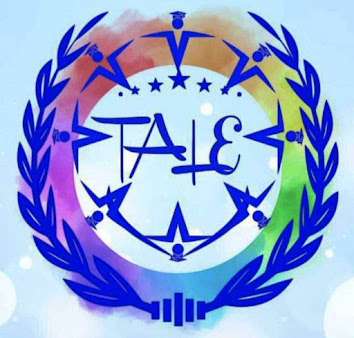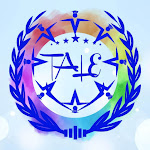Hawk Roosting: Ted Hughes
Ted Hughes is a student of Oxford University. he is deeply influenced by two scholars. One of them is Robert Graves and the other is Sir James Frazer. From Graves, Hughes took the briefness, terseness, sharpness etc. and from Frazer and his book 'The Golden Bough' he got all the details of myth and mythologY.
Like Dylon Thomas, Hughes also wrote Romantic poetry but a special kind of Romantic Poetry in modern period. In modern period, there was a social oriented group of writers who were writing about society and their stories dealt with city life. But Hughes did not make contact with this group. In stead of writing social oriented literary works, he wrote about the ordinary objects of Nature like hawk, crow, fox etc.
After the terrifying suicide of Hughes' wife, Sylvia Plath, he escaped from his known society and refuged in a silent and unknown society for long ten years. And after ten years, he came to his town and wrote some prose works and poems.
Hawk Roosting and Hughes:
Freud used a word called 'totem' which means some objects or animals chosen or respected as special symbols of tribes or families, especially among native Americans. This, actually, means an image of the animal.
'Shaman' is a term, denoting the meaning African name of witch-doctor. They used to be the connective link between human and animal world. Here, in 'Hawk Roosting' Hughes is a shaman.
Ted Hughes' subject is most simply described as the relation between man and nature. But that phrase conveys nothing of the intensity of the imaginative endeavour. This endeavour is to gain access to a level of being at which the continuity between the processes of nature experienced within and observed without unimpeded by consciousness.
Here lies the source of all energy, creativity and delight. The imaginative process is triggered by the observation of something in external nature, usually an animal. His poems sometimes seem like an invasion of their subject's being. Hughes' animals are unmistakably 'other' in that they present a shock and a challenge to the poet; for him the animal is not merely an analogue or emblem of an indivisible whole, a lump of astral energy.
Q: Would it be correct to describe "Hawk Roosting" a poem of violence?
The hawk in this poem is imagined by the poet as speaking and expressing his ideas about himself and the universe of which he is a denizen. The hawk speaks with a sense of authority and with the fullest possible confidence in himself. We feel amazed by his egoism and self-centeredness. His egoism is boundless and infinite.
Even more striking than the hawk's egoism and his sense of power, is the imagery of violence and brutality in this poem. The hawk is proud of his power to kill and here he reminds us of the pike in another poem of Hughes'. All the fierceness and brutality of the hawk have been summed up in a few lines such as follows:
"I kill where I please, because it is all mine
There is no sophistry in my body:"
The hawk's whole business in life is 'tearing off heads'. His whole concern is to distribute death and he never wavers in carrying out his task because he knows only one path and that is the path leading him directly through the bones of living creatures. Thus "Hawk Roosting" is one of those poems which show Hughes' interest in the violence and brutality which are the rule, not the exception, in the world of nature. Some critics have called this interest in violence and brutality an obsession but that is a wrong way of looking at these poems. Violence and brutality are just one of the many themes in the poetry of the Ted Hughes and there is no morbid or inhuman about Hughes' interest in this aspect of this universe.
Hughes' own comment on the charge of the theme of the violence in the poem is very illuminating. Hughes said that "Hawk Roosting" has generally been regarded by critics as one dealing with the theme of violence. Critics thought that Hughes had written this poem to denounce the fascism or dictatorship in certain countries. The hawk, sitting in his nest on a tree and talking to himself, was regarded a symbol of some horrible totalitarian dictator bent upon an enemy race of people.
Hughes said that this approach to his poem about the hawk was entirely wrong. He further said that this poem only represent Nature as thinking. He meant the hawk in his poem to be a representative of Nature as a whole. The hawk in this poem is not a Hitler. But just Nature talking to herself. In other words Hughes merely wanted to depict the cruelty and blood-thirstiness which prevail in Nature.
In a London Magazine interview [January, 1971] Hughes said,
"That bird is accused of being a Fascist .... the symbol of some horrible genocidal dictator. Actually what I had in my mind was that in this hawk Nature is thinking. Simply Nature." For Nature thinking he finds a language quite different from the attempts to perform and empathy -- he wrote in a cool, self-possessed, distanced language. Many of the words that establish the tone are surprisingly abstract: 'rehearse', 'convenience', 'advantage' and 'inspection'. Coming as they tend to, in brief phrases, they actually contribute to the poem's effect of brutal hardness.
The elegance and confidence with which they are used, serve in place of hawk's physical splendour. The assurance of being at the centre of things, the focus of creation, in the middle stanzas of the poem, is what most strongly supports the claim that this is Nature thinking -- the Hawk is poised and serene, it is full contemplative ease.
The poem's prime device, the use of the first person singular, carries with it an inevitable irony. Hughes exploits this paradox of his chosen form in the last three lines, were nature and the hawk think in the same words but two different effects.
to be continued....












No comments:
Post a Comment